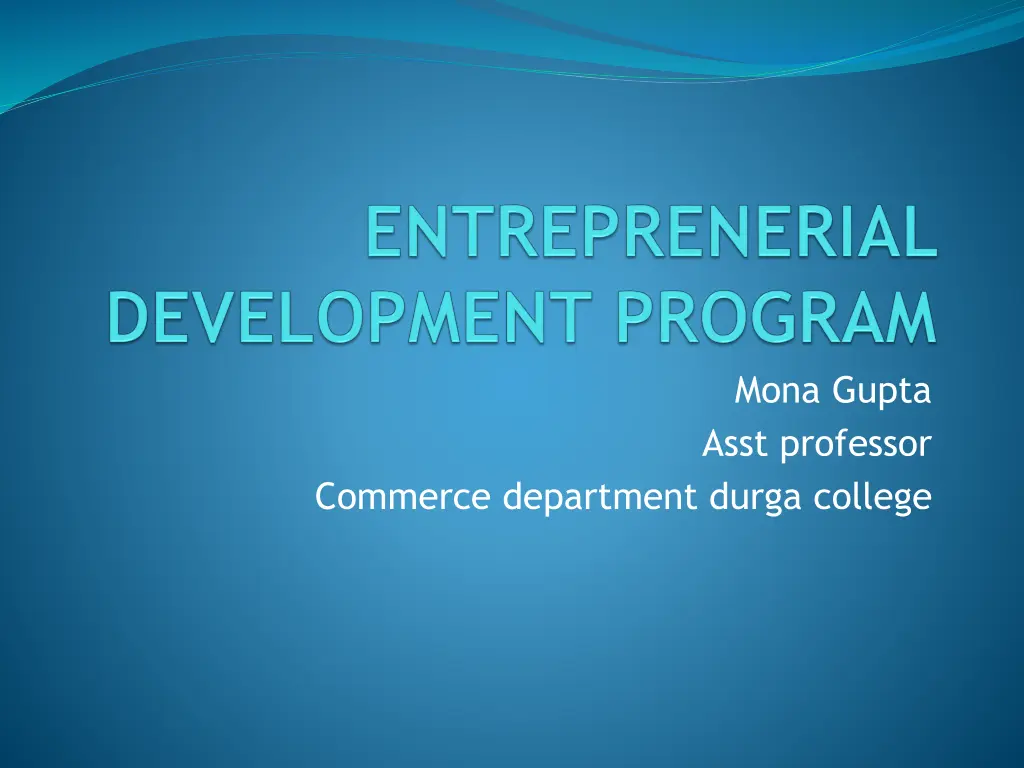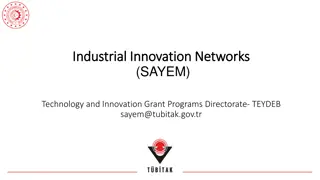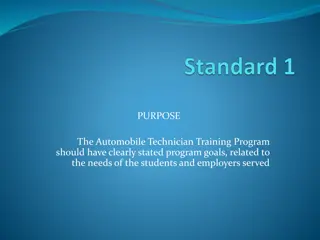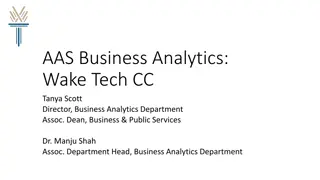
Entrepreneurial Development Programs: Phases, Objectives, and Implementation
Explore the essential components of Entrepreneurial Development Programs (EDPs) including phases like pre-training, training, and evaluation, along with the objectives and strategies for fostering entrepreneurship among participants. Discover how EDPs aim to identify and nurture potential entrepreneurs through education, training, and motivation.
Download Presentation

Please find below an Image/Link to download the presentation.
The content on the website is provided AS IS for your information and personal use only. It may not be sold, licensed, or shared on other websites without obtaining consent from the author. If you encounter any issues during the download, it is possible that the publisher has removed the file from their server.
You are allowed to download the files provided on this website for personal or commercial use, subject to the condition that they are used lawfully. All files are the property of their respective owners.
The content on the website is provided AS IS for your information and personal use only. It may not be sold, licensed, or shared on other websites without obtaining consent from the author.
E N D
Presentation Transcript
Mona Gupta Asst professor Commerce department durga college
Concept Entrepreneurial development is a process in which persons are prepare to face business uncertainties and risks. This is possible with proper education,training,motivation,orientation and reorientation of entrepreneurs.
Concept Entrepreneurial development program means a program designed to help young entrepreneurs in strengthening their entrepreneurial motive and in acquiring skills and capabilities necessary for playing their entrepreneurial role effectively.
Phases of EDP Pre-training phase Training phase Post-training phase (follow up) Evaluation phase
Objectives of EDPs To identify potential entrepreneurs. To develop necessary knowledge and skills among the participants. To develop and strengthen entrepreneurial quality and motivation. To understand the process and procedure of setting up small enterprise. To select project and products. To provide follow up assistance. To train entrepreneurs to understand envirnomental threats and opportunities.
Pre-training phase Selecting faculty and resource persons for imparting training. Designing course curriculum. Advertisement for inviting applications. Selection of suitable participants. Arrangement of infrstructure for training.
Training phase A trainer should see the following changes in the behavior of participants: Is the motivated to plunge for entrepreneurial ventures and risks that is expected of an entrepreneur? Is there any change in his role outlook and skill? How should he behave like a entrepreneur? What kind of entrepreneurial behavior does the trainee lack? Does he possess the knowledge of technology and other sources?
Evaluation phase The very purpose of evalution phase is to know the effect of past work done and to frame the future policy.the objectives of EDP ollow up are To review the pre-training phase. To review the prosess of training. To review the post-training approach
Post-training phase Post guidetraining phase revels drawbacks in the pre- training and training phases and suggest guidelines for framing future policy. The various aspects of post- training phase include the following activities Follow-up meeting of the officials of EDP organisations with the participants of trainees. Counseling and guidance of trainees Escort service to the trainees Assistance to project report prepration. Assisting in selecting location of the unit.






















